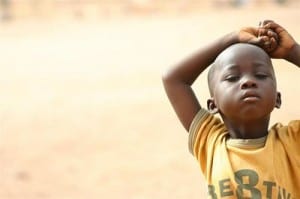Burkina Faso: Fighting Meningitis
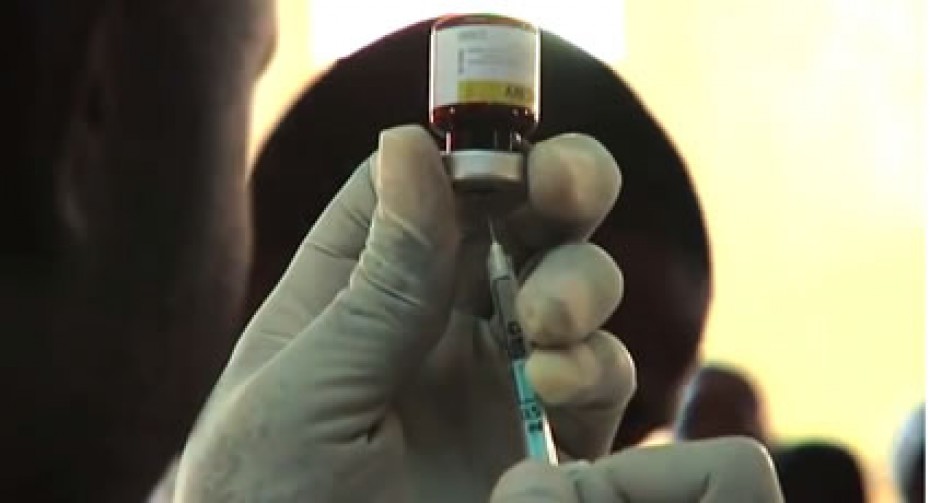
Meningitis is an infectious disease that causes hearing loss and brain damage. Burkina Faso is one of the hardest hit countries in the meningitis belt and is the first African country committing itself to a nationwide campaign to vaccinate all of its children against the disease.
Continue Reading ›Choosing to Follow Jesus: One Muslim Woman’s Story
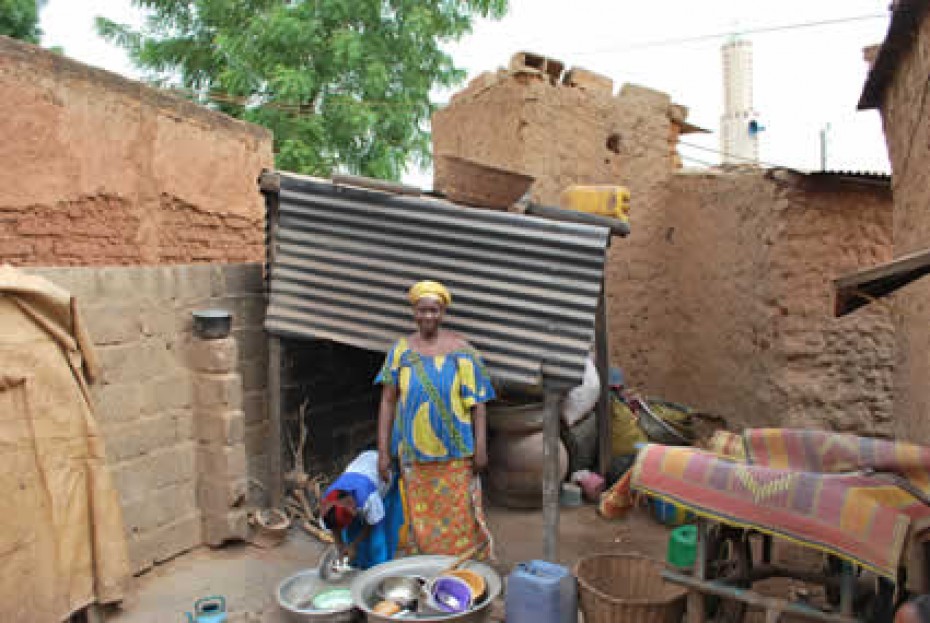
Being from a Muslim family, and living in front of the community mosque, Awa’s decision to become a Christian was not acceptable among the Muslim community
Continue Reading ›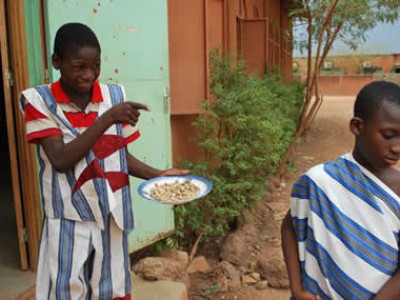
The Tradition of Rakiire in Burkina Faso
What is Rakiire? Rakiire consists of two people within the same big family or between two different ethnic groups telling jokes that are often very sour and border on insolence.
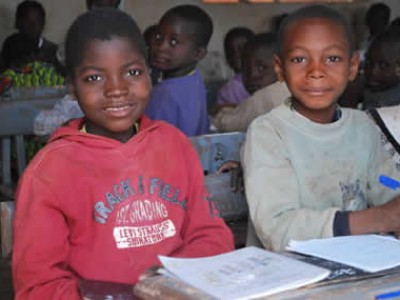
Why are Some Children Considered Highly Vulnerable and Others Aren’t?
The process of identifying highly vulnerable children starts by observing them among their peers. Then home visits and discussions with the child’s parents help the center workers learn more details about the child’s living conditions.This procedure determines whether there is a need to provide help to the caregivers in addition to the support their children already receive from the development center.
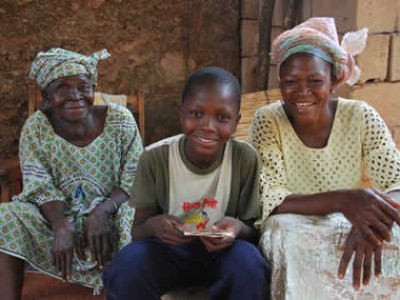
Sponsor Letters Can Be a Family Affair
Though Fabrice’s mother lives far away, he always manages to show her his sponsor’s letters. His mother enjoys reading these letters to learn about her son’s benefactor, who lives in a country they know only by name.
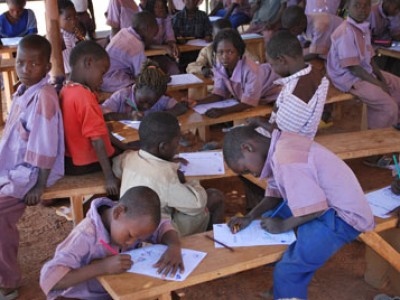
Life in Burkina Faso
Burkina Faso — translated as “country of upright people” — is one of the poorest countries in the world (172 of 182 countries, according to the United Nations Development Programme).
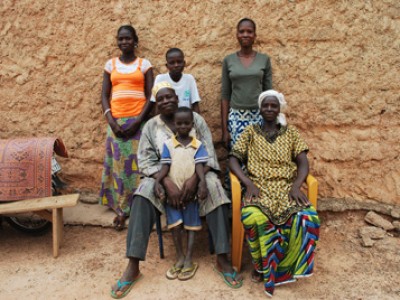
What Is There to Love About the Church?
“The Church is the Bride of Christ through which the world should know the Lord, and to my knowledge God has not planned an alternative.” — Palamanga Ouali, Country Director of Compassion Burkina
Introducing a Future Minister of Defense for Burkina Faso
Twelve-year-old Fadilatou is one of the top five scholars of her age in all of Burkina Faso. She is the youngest child of the family, with six brothers and sisters. Because of her parents’ hospitality, they have received some of their nephews and nieces, along with their children, so the total number of people in the family is 23.
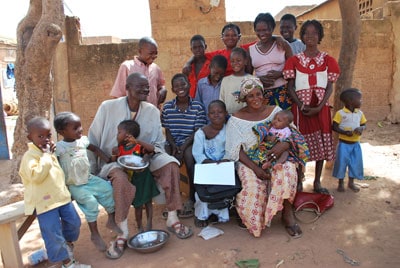
Fadilatou’s father was a driver, but is now too old to work, so he stays at home all day taking care of his grandchildren.
Her mother is a hairdresser and provides food for all the family with her income of less than $2 a day. Sometimes the mother goes to bed without eating, so the rest of the family can share the little food she has gathered.
In 2004 Fadilatou enrolled at the Assemblies of God Patte d’Oie Child Development Center. Her father was not for it because he did not know about the ministry of Compassion, but her mother insisted and convinced him to allow the girl to be part of the program.
Since she joined, Fadilatou has been the top pupil in class. She dreams of going to a military academy next year. “I would like to become minister of defense of the country,” Fadilatou tells her parents.
What Does Child Sponsorship Mean in Burkina Faso?
Pastor Korogo has been a pastor since 2002. He officiates as junior pastor in the central church of the Assemblies of God Church of Ziniaré, 30 kilometers from Ouagadougou, the capital of Burkina Faso.
In 2008, when the church began partnering with Compassion, Pastor Korogo was recruited as child development center director because of his long-standing experience in the ministry among the children of his church.
The development center has 220 registered children who take part regularly in center activities. Like all the other centers in the country, it is located in an area where poverty is visible in people’s daily lives.
The great majority of the population does not have access to drinking water or electricity. When someone in these families falls ill, he is cared for with indigenous methods, as families can’t afford medical care or drugs at the pharmacy.
The child development center is located in a community that is nearly 70 percent Islamic. The largest mosque in the city is 10 meters from the church that shelters the center. This proximity sometimes makes it difficult for Muslim children to effectively take part in the center activities.
AIDS Crisis in Africa: Living HIV-Positive
My name is Azalea*. I live with my daughter. She is 10, in grade four and is second in her class. So, we are two people in the family. My husband passed away several years ago after a short disease. He was suffering from a liver problem.
We eat rice, millet pastry and beans. As we are only two, I cook once a day. After breakfast, I cook and we eat the meal at noon, and in the evening I reheat the leftovers and we eat.
We are living in an urban area. We have electricity and running water in the community, but only for those who can afford it. We also have a medical center in the neighborhood. Most people sell small items to feed their families.
I discovered my daughter was HIV-positive in 2005. She was suffering from severe chickenpox. The treating doctor suggested us to take an AIDS test. We agreed, and the child was declared HIV-positive.
I do not know how she got the disease, if it was during her birth or during the blood transfusion she got when she was very little.
My daughter does not yet know she is HIV-positive, but I will surely tell her. As I do not know how she will react, I am looking for the right moment to tell her.
I am also HIV-positive, but I do not know how and when I got infected. When the doctor discovered that my daughter was HIV-positive, he encouraged me to take the test and that was how I came to know.
I was very shocked when I found out. I was asking myself how I would live with the disease and how others would react.
Four years after being declared HIV-positive, I am still asking myself the same questions. (more…)
From the Outside Looking In
Back in May I published a photo and asked you to give it a caption. I also included a little context from the photographer.
“Along the wall outside the Compassion project, many children watched and waited while the other children played and sang. With hundreds and thousands of children needing the hope that Compassion brings, our hearts broke to see the ones that could not be helped. Hundreds more are waiting for their chance to be sponsored, to be given hope, to be shown the love of Christ.” — scfish7
Then recently, I received the following e-mail.
“I read the blog about the children who are registered who are able to sing and enjoy meals while the unregistered ones just stare at them, wishing they were one of them. I have a hard time imagining what this is like.
“Is it like there is a ‘Century Fence,’ so to speak, that separates these two groups, where the unregistered look in and feel sad as they watch the sponsored eat hot meals and be carefree?
“Does this make them feel more unloved?
“Is it appropriate to send a picture or have one on this Web site so I can see what you are talking about? I have a hard time understanding this and maybe a picture would help.”
What are your thoughts? What do the children on the outside looking in feel?
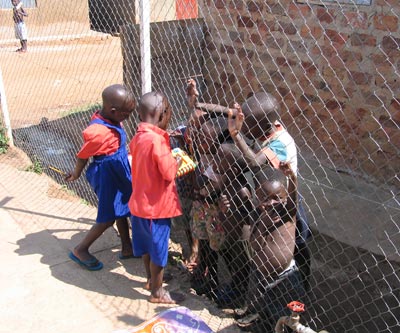
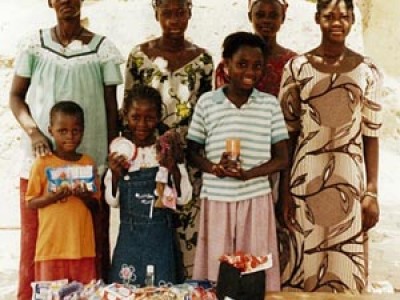
Child Sponsorship: It’s a Family Affair
I realize that God wants me to look at my sponsorship of Evelyne from a whole new perspective. My goal now is to win Evelyne’s entire family to Christ.

